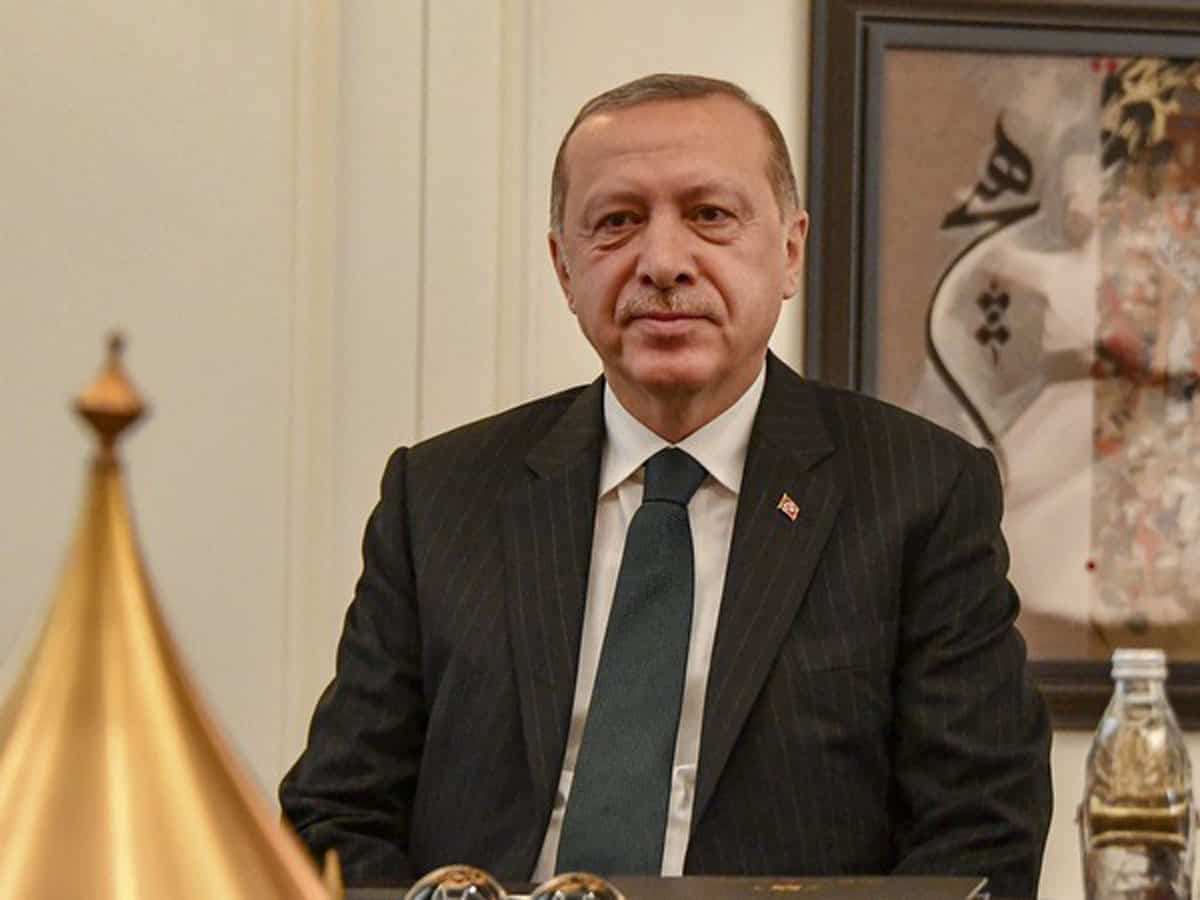
Ankara: Turkish President Recep Tayyip Erdogan announced the salaries of civil servants and pensioners would rise by an additional 5 per cent to 30 per cent in the first half of 2023.
The move came a day after Erdogan announced on Tuesday that salaries for both active and retired civil servants would be increased by 25 per cent for the first six months of this year, reports Xinhua news agency.
“As a result of the studies carried out, we have provided opportunities to hike the salary increase rate of civil servants and pensioners up to 30 percent by making sacrifices in some other areas,” Erdogan told his party members in Parliament.
The lowest pension for retired citizens would be 5,500 liras ($293) in 2023, up from 3,500 liras, he said.
The move is part of the government’s efforts to ease Turkish citizens’ burden of rising living costs, which stem mostly from high inflation.
Since mid-2018, Turkey has been experiencing serious economic problems, such as high inflation and a decline in households’ purchasing power.
Erdogan prepares to run for presidential and parliamentary elections scheduled in June, hoping to gain the support of Turkish citizens despite the country’s challenging economic conditions.
The Turkish government has introduced a number of initiatives, including a big housing project for low-income families, cheap home mortgages for middle-income Turks, and lower utility tax rates.
The government earlier announced a rise in the minimum wage by 55 per cent from the beginning of 2023.
The monthly net minimum salary will be 8,506 liras in 2023.
Erdogan favours low-interest rates in the hope of boosting economic growth and employment.
The lira has devalued by more than 50 per cent since September 2021.
For the first time since May 2021, Turkey’s inflation saw a slowdown in November last year, decreasing to 84.3 per cent from 85.5 per cent in October, which was the highest since 2002.
The country’s annual inflation fell sharply to 64.27 per cent in December due to a base effect.
(Except for the headline, the story has not been edited by Siasat staff and is published from a syndicated feed.)



